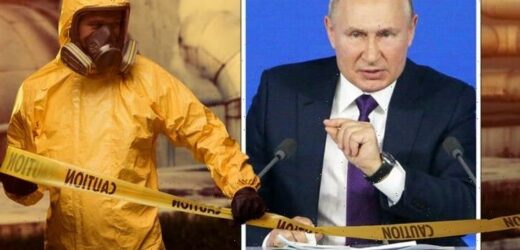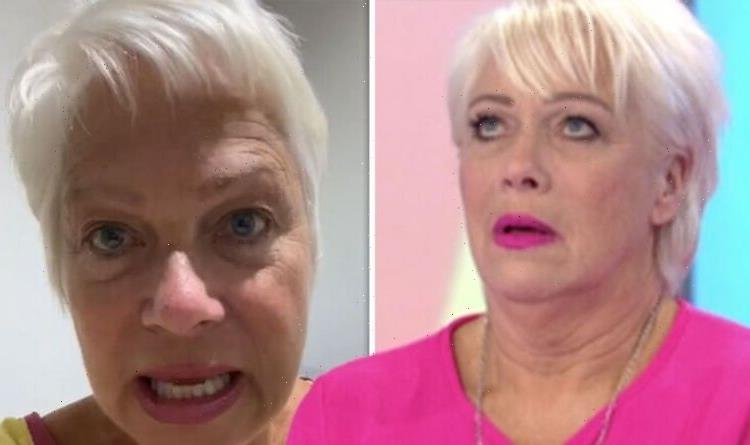Ukraine: Prospect of chemical weapons addressed by Stoltenberg
We use your sign-up to provide content in ways you’ve consented to and to improve our understanding of you. This may include adverts from us and 3rd parties based on our understanding. You can unsubscribe at any time. More info
The European head of the global health body said that it is taking warning signs from the West and Russia extremely seriously and preparing for the possibility of a “chemical assault” in Ukraine. Fears surrounding the potential use of such weapons by Russia have steadily risen as the war in Ukraine has continued. Experts believe that the stagnation of Russian President Vladimir Putin’s invasion could mean that the Kremlin may use such deadly weapons to advance.
Putin has been known to use chemical weaponry to achieve his ends – from the Salisbury poisonings using the Novichok nerve agent in 2018, to the poisoning of Russian opposition leader Alexei Navalny by a similar chemical in 2020.
The Kremlin has denied involvement in either event.
Most recently, sanctioned Russian billionaire Roman Abramovich and Ukrainian peace negotiators suffered symptoms of suspected poisoning in March after a meeting in Kyiv.
Russia has also accused Ukraine of preparing to use chemical weapons – which analysts believe could be part of a false flag operation to justify using chemical weapons.


During a briefing in Lyiv, Ukraine, Hans Kluge, WHO regional director for Europe said: “Given the uncertainties of the current situation, there are no assurances that the war will not get worse.
“WHO is considering all scenarios and making contingencies for different situations that could afflict the people of Ukraine, from the continued treatment of mass casualties to chemical assaults.”
When asked directly about a possible Russian chemical attack on Ukraine, Mr Kluge said: “The short answer is that WHO is preparing for any eventuality within our mandate.”
As fears are growing around chemical attacks have grown, the European Commission announced earlier this week that it too has begun building up its ability to respond to chemical, biological and nuclear threats.

Through its EU Civil Protection Mechanism, the bloc will create a €540.5million (£450million) “strategic stockpile”, which will consist of equipment, medicines, vaccines and other responses to chemical, biological, radiological and nuclear (CBRN) threats.
As an immediate first step, the EU has mobilised its rescEU medical reserve to procure potassium iodide tablets, which can be used to protect people from the harmful effects of radiation.
Almost 3 million iodide tablets have been delivered to Ukraine via the EU Civil Protection Mechanism, with the help of France and Spain.
The EU is also developing a €66.7 million (£55.6million) decontamination reserve comprising both staff and equipment to decontaminate people, infrastructure, buildings, vehicles or critical equipment that have been exposed to CBRN agents.
DON’T MISS:
US reveals hypersonic missile test, risks escalating Russia tension [REVEAL]
Putin threatens to STARVE Germany in horror retaliation to measures [INSIGHT]
Putin’s killers: Russia’s five deadliest weapons that could be used [ANALYSIS]


The strategy promises to provide “an extra layer of protection and ensures a faster and more comprehensive response to disasters.”
The Kremlin has denied any plans of using chemical weapons in Ukraine.
However, Russia’s involvement in the Syrian Civil War, where the Russian backed government used deployed chemical weapons against its own people, further adds weight to these fears.
Source: Read Full Article


